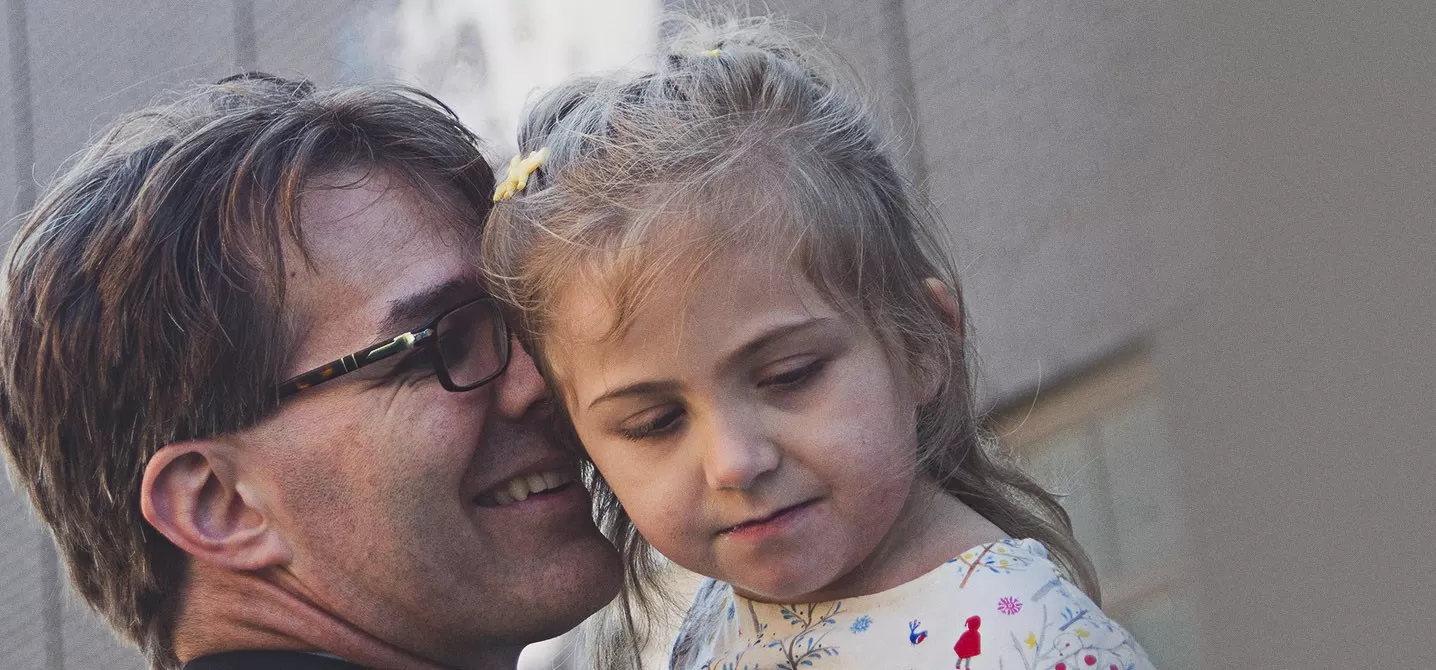Finding the Words

I told my daughter, Eleanor, the news. I had just put her in bed for the night. Her arms had stopped moving and she was breathing quietly. She stared into my eyes with that intense look that only the parents of a daughter with Rett Syndrome can understand—intelligent, lucid, expressive of so much even though she can’t speak. I told her that a biotech company was taking steps to turn RSRT research into a clinical trial in gene therapy—a trial that could lead to improvement not just of a symptom or two but of her whole life. I told her that it’s possible that this could help her walk and talk; that it could let her live the dreams that I know she has.
I don’t know how much she understood. I always choose to believe that she understands a lot of what’s being said to her. She listened intently, smiled a little, and then fell asleep.
In the five years since Eleanor was diagnosed it’s only the second time I’ve told her about what’s going on in the research. She’s only eight years old and I don’t want her burdened with thinking about research or the future. But this was different. For the first time a clinical trial is being planned that’s attacking Rett at its genetic core. I wanted her to know how optimistic I am. I wanted her to know that RSRT and its researchers are working hard to fix the single gene mutation that so drastically changed the course of her life.
It struck me as I was telling Eleanor this what a different place we are in with Rett research than we were just a year or two ago. Until now the science has been about finding -finding the approaches that are most likely to make a significant difference to those afflicted. And RSRT’s funding needs have been open ended to support those efforts. Now things are very different. We have a Roadmap to a Cure that lays out four priority approaches that could become a cure. We have an amount we need to raise as soon as possible to carry out these approaches - $25 million (more than $8 million has been pledged or contributed so far by generous families towards the $33 million Roadmap to a Cure budget). And we have taken a major step forward on gene therapy, one of the four potentially curative approaches. There’s a new clarity, direction, and momentum that’s incredibly exciting to me. I’ve been excited in the past about research developments, but I’ll admit, not like this.
To all the families who fundraise for us now, I hope you know how vital you have been to getting us to this stage. The AveXis announcement and Roadmap to a Cure are hard evidence of your impact. Your efforts will be more important than ever over the next several years.
If you’re a parent, grandparent, sibling, aunt or uncle, or a friend of an affected family and you’re not involved with us now, we need your help to raise the $25 million that will enable RSRT to carry out Roadmap to a Cure. If there’s ever a time to get involved, it’s now. Every dollar matters. There are different ways to fundraise and you can choose the one that’s most comfortable for you. Two possibilities are crowdfunding or starting an event. I hope to hear from you.
Tim Freeman


